‘It’s hard to listen to a Swiss complain’
Professional mountain biker Ariane Lüthi has lived in South Africa for eight years. As a woman, she says, she has had to fight harder there than in Switzerland.
Team-Photoshoot 2018. (Photo: Craig Kolesky)
The 35-year-old from the Bernese Oberland, who holds university degrees in sports, media science and history, thinks that a lot of Swiss who have never travelled don’t appreciate how much Switzerland has achieved when it comes to societal issues.
swissinfo.ch: When and why did you leave Switzerland?
Ariane Lüthi: I emigrated to South Africa at the end of 2010. Two months before leaving, I took part in a mountain bike stage race where I met my ex-husband. He was able to give me a contract to join his new mountain bike team as a professional. I emigrated to South Africa for love and the opportunity to turn my passion into my profession.
swissinfo.ch: Was it a one-way trip or are you planning to come back one day?
A.L.: When I left Switzerland and got married soon afterwards, I thought I’d probably stay in South Africa. Now that I’m divorced, I’m contemplating Swiss residency again. The mountain bike races take me on many trips, which means that I never stay in one place for long anyway. I usually spend as much time in Switzerland as in South Africa each year.
swissinfo.ch What relationship do you have with Switzerland?
A.L.: I still feel very close to Switzerland. My family is there, and I still have many friends who I keep in touch with. Also, when I wanted to integrate in South Africa, I spent a lot of time trying to understand the differences between the two countries and find out why my origins make me somewhat different.
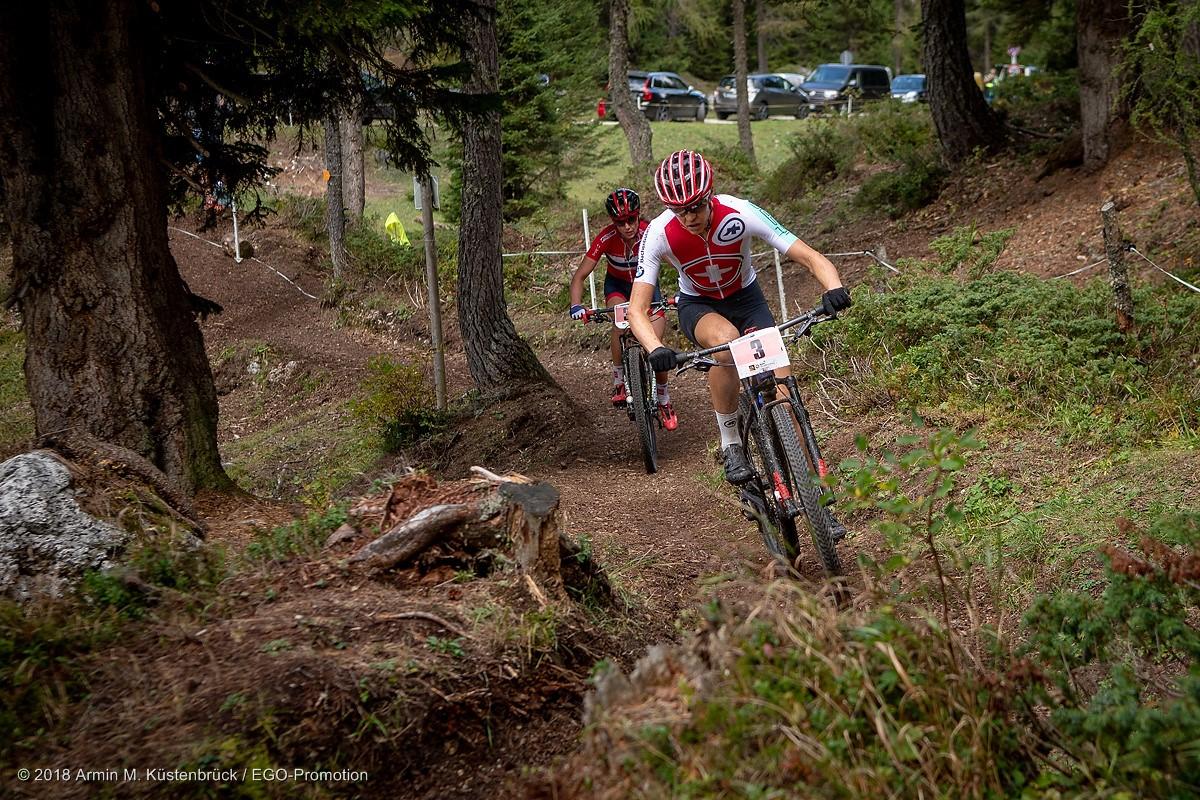
And I found that whenever something made me angry, my first reaction would be: “Ah, typical South African! This would never happen in Switzerland.” However, after some self-reflection, I have to admit that the different perceptions of reliability and punctuality can be just as well explained by my own cultural background.
swissinfo.ch: What’s typically Swiss for you?
A.L.: The Swiss often feel superior towards developing countries or – in South Africa’s case – emerging markets. But just because Switzerland is economically better off than South Africa doesn’t necessarily mean that the Swiss way is the better way. That said, Switzerland is still my home and that’s why I’m still very much interested in current and political affairs there.
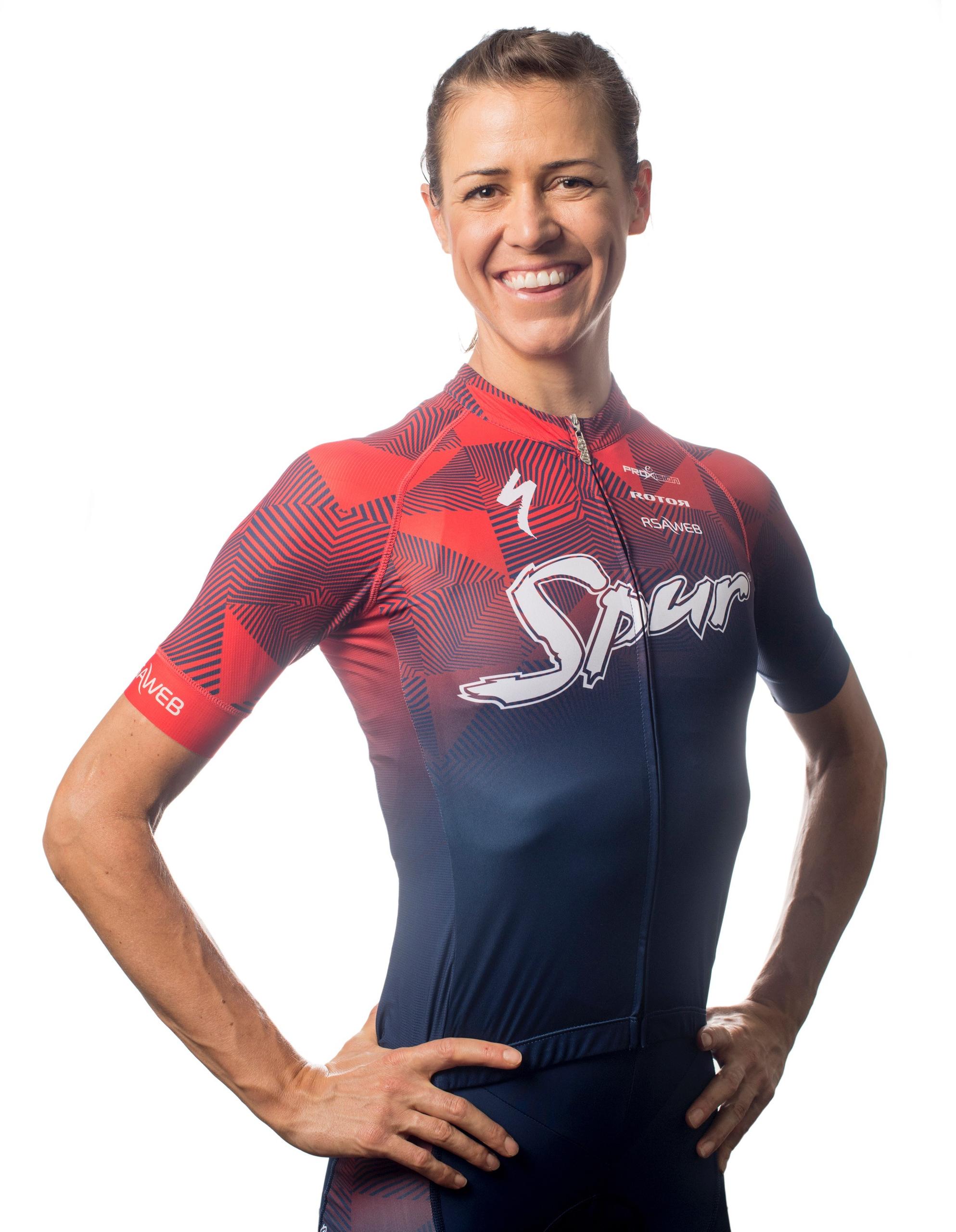
swissinfo.ch What exactly do you do as a mountain biker? How is your career going?
A.L.: I became a professional mountain biker through my ex-husband and I race for the South African Team SpurExternal link. I’ve been lucky to celebrate some good successes during my career, one of which was winning the legendary Cape Epic stage race five times [one of the hardest mountain bike races in the world]. I will probably never be rich in terms of money, but I love my job. It has enriched my life with beautiful, intense memories which have made me a happier person at the end of the day.
swissinfo.ch: Where do you live and what’s life and the cuisine like there?
A.L.: I rent a studio flat in Stellenbosch, which is my base from September to April. Stellenbosch is a small place close to Cape Town, famous for its beautiful vineyards and excellent wines. It is also a popular place for world class athletes from the fields of triathlon, athletics, swimming and, of course, mountain biking. Many mountain bike pros come to Stellenbosch not only to take part in the Cape Epic race, but also for the World Cup, which is new to this area.
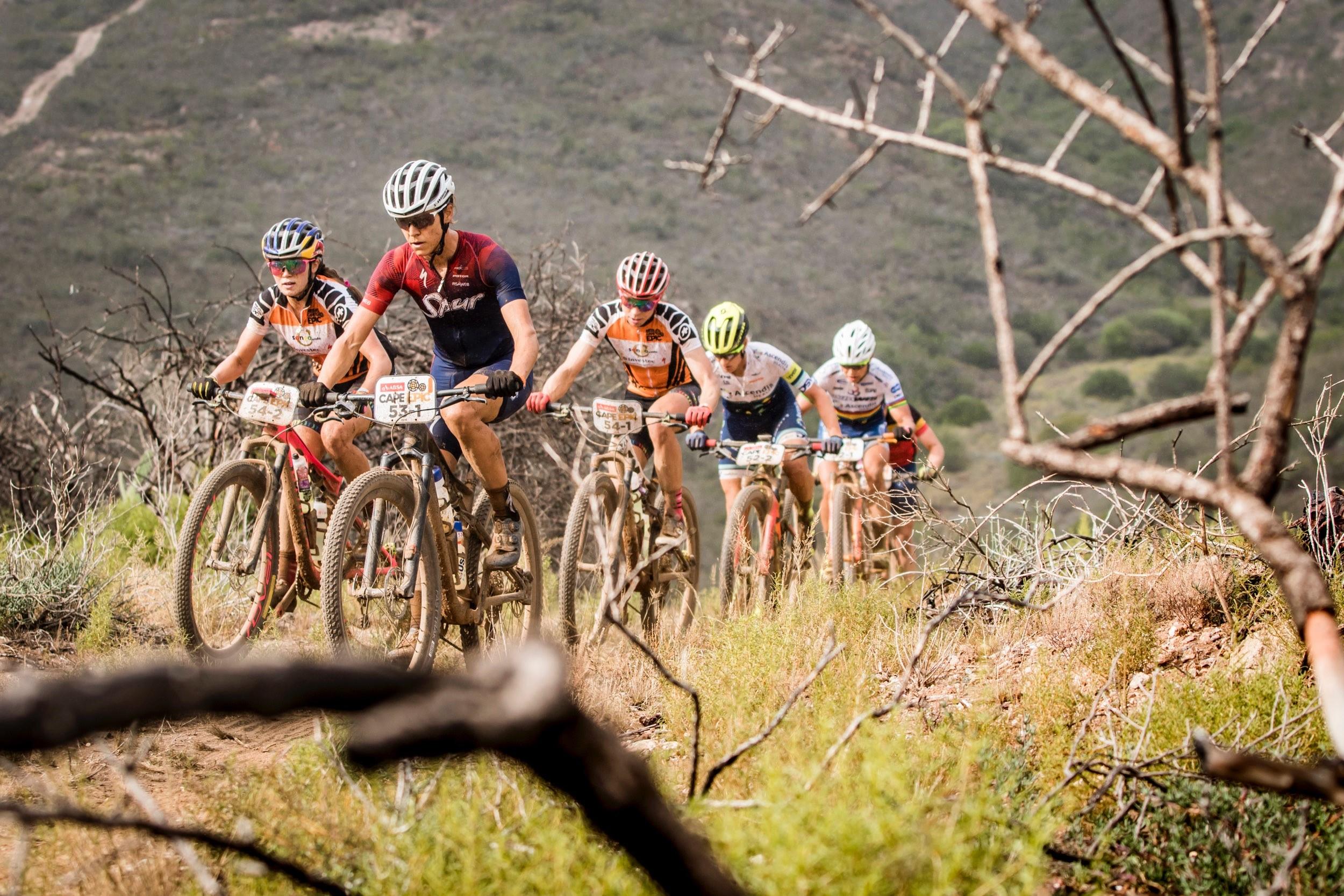
From January to March, so, Stellenbosch is swamped not only with students, but also world class athletes. The hot and dry weather, the numerous trails, the relaxed lifestyle and the good food have turned Stellenbosch into a very popular training ground.
As the white South Africans originate from Europe, mainly from the UK and the Netherlands, the cuisine is pretty much European. Cape Town also used to be on the trade route from Asia to Europe; this has added an Asian touch to the food. Bobotie – minced meat seasoned with curry and chutney – is a perfect example of this fusion cuisine.
swissinfo.ch: What do you prefer in South Africa over Switzerland?
A.L.: The weather is definitely more appealing. Being a mountain biker, the dry and warm weather is a great advantage to clock up the miles without catching a cold. But the biggest difference to Switzerland is probably South Africa’s cultural diversity, which is much greater than at home. There is a reason why South Africa is known as the rainbow nation.
At the Somerset West beach, 20 km from Stellenbosch. In the background is the Cape Peninsula and Cape Point. (Photo: Joanna Dobinson)
swissinfo.ch How do you view Switzerland from afar?
A.L.: The Swiss are extremely well off. As poverty is pretty rare in Switzerland, people don’t really value what they have. Once you have seen how people can be happy with very little, it’s hard to listen to a Swiss complain. Looking at how wealthy Switzerland is, I think we should do more to alleviate the great suffering in the world.
Apartheid is a thing of the past in South Africa, but the country still has a long way to go to achieve an equal world, where certain groups of people no longer feel superior to others. Isn’t it true that the Swiss are only so well off because other people, far away, are still being treated like slaves?
swissinfo.ch: Do you sometimes feel like a stranger or are you well integrated?
A.L.: The South Africans are very open and consider me as one of them. Of course, there will always be moments when I feel that I am from a different part of the world. For example, when I don’t quite understand an inside joke or when I accidentally offend someone with my less prudish and more direct Swiss manners.
On holidays at the Hotel Lechlife in Reute, Austria, 2018. (Photo: Julie Magnussen)
swissinfo.ch: Which cultural differences are most difficult for you?
A.L.: What I initially found most difficult was probably the unreliability of the South Africans. A promise is not always a promise and I would sometimes get disappointed, especially when it came to sponsor negotiations. I have learnt a lot over the years though, and I have now found support from reliable and sincere sponsors. I guess we can’t tar everyone with the same brush.
What I also find rather cumbersome is the constant pressure women are under to be beautiful. In this respect, the South Africans might be more superficial than my Swiss friends. However, I’m sure there are also plenty of superficial people in Switzerland!
I also feel that women have to fight to gain respect in South Africa. The roles for men and women are still very conservative, especially among the Afrikaans – the South Africans with Dutch origins. I was married to an Afrikaans and I often struggled with this. I missed the tough women I knew from Switzerland.
After winning the Attakwas Extreme UCI Marathon, January 2018: “My sixth victory in this race. After two years of struggling hard with depression, this was one of the best victories of my career, because I felt that I could finally ride at my old level again,” said Lüthi. (Photo: Zoon Cronje)
swissinfo.ch: What makes you most happy in your everyday life away from Switzerland?
A.L.: The open and relaxed way of living of the black people. They often carry out badly-paid work, such as regulating the traffic by waving a little flag at road construction sites all day. They still say hello with a smile, and I have even seen them dance.
swissinfo.ch: Do you take part in Swiss votes and elections?
A.L.: I would love to participate in popular votes. However, I usually only receive my papers after the actual vote as the post is a bit slow here. I would really like to see the introduction of an e-voting system!
swissinfo.ch: What do you miss most about Switzerland?
A.L.: Speaking of – I miss a faster and more reliable postal system that would enable me to vote. Better quality tap water and a mixer tap are great things that I am spoilt with in Switzerland. But first and foremost, I miss my Swiss friends, my family, chatting away in Swiss German and the beautiful Alps, which I miss in the South.
Selfie with the “Trail Angels”, a group of women in South Africa who meet regularly for a mountain bike ride through nature.
Are you a Swiss citizen living abroad? If so add #WeAreSwissAbroadExternal link to your photos on Instagram.
The points of view stated in this article, especially about the host country and its politics, are the interviewee’s points of view and are not necessarily in line with swissinfo.ch’s position.
Translated from German by Billi Bierling, swissinfo.ch

In compliance with the JTI standards
More: SWI swissinfo.ch certified by the Journalism Trust Initiative





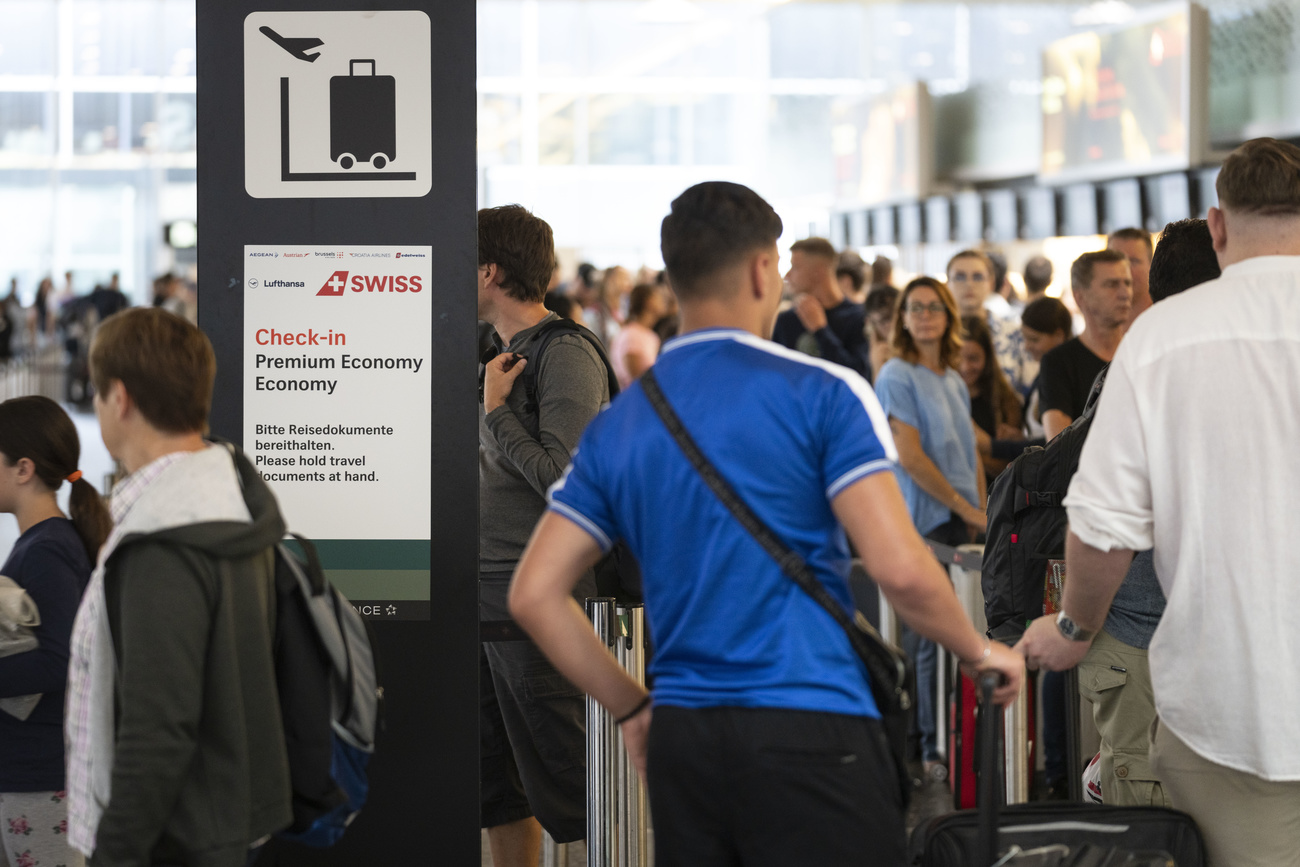






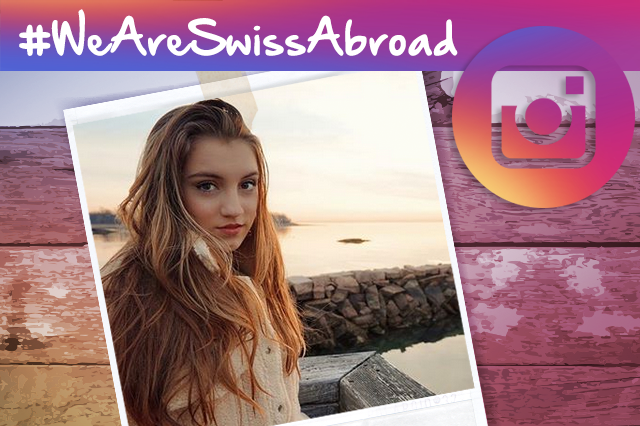

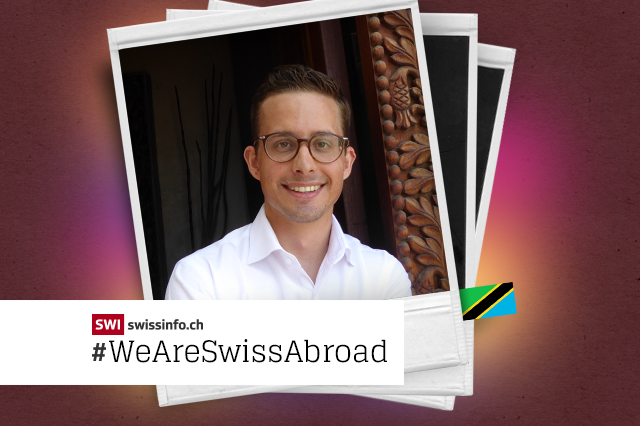
You can find an overview of ongoing debates with our journalists here . Please join us!
If you want to start a conversation about a topic raised in this article or want to report factual errors, email us at english@swissinfo.ch.